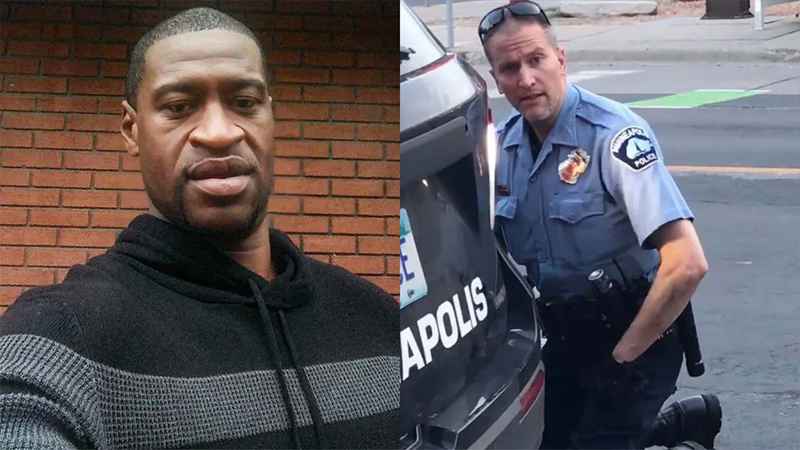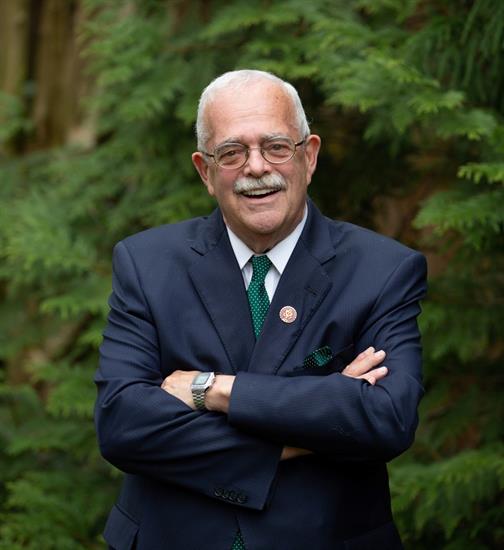The Trial of Derek Chauvin: An Intersection of Reparations, Justice, and Truth as History’s Forgotten Offspring
It would be extremely difficult for me to prove that slavery has impacted my life, and that I’m personally owed reparations. I have enjoyed too much education, career, and monetary success to claim such a payment would make me or my family more whole. However, I can make a valid argument that a number of people today suffer the downstream effects of their grandparents, great grandparents, and others in their bloodline having been wronged. That many, across racial lines, were unjustly enriched and shouldn’t enjoy the benefit of distanced accountability simply because extant laws were inadequate. The enduring consequences of burning down one’s livelihood in Tulsa based on racial hatred don’t age well over time.
Reparations aren’t all about money though. In fact, reparations in the form of recompense within the context of “justice” bear much higher value. Specifically, the extent to which justice, at least this time around in the trial of Derek Chauvin, will go beyond addressing systemic racism to address its intentionality in our systems. Address the minds and actions of those with power who use racism as an actual strategy to hold on to it and make it essential to the status quo. So essential, in fact, it’s perpetuated even by those who are oppressed. When black people hear about a crime, such as a mass shooter or terroristic act, many hope and pray it wasn’t a black person who committed those acts. When it is, many of us feel ashamed even though we know we had nothing to do with it.
Many, if not most, people who watched Chauvin choke George Floyd to death felt disgust, which speaks to our collective humanity. But I didn’t gather that many who shared Chauvin’s race felt personally embarrassed by it. Mainly because they feel they had nothing to do with it, which is logical. Yet, the notion of “privilege” is about the agency one enjoys by birthright, relative to others who feel less self-empowered as a class of people. In the Chauvin case, it was about not having to be associated with a bad actor of the same color, whether consciously or subconsciously. In the eyes of many black people, their white counterparts have long considered themselves fully franchised, so they can simply dismiss any notion of class association when, for example, Timothy McVeigh killed 168 men, women, and children with a bomb or Dylann Roof executed 9 churchgoers, including a public official, in cold blood.
But the killing of George Floyd was seen by many as the residue of a time when slavery made black people out to be deficient and criminal as a class, a legacy that leaves many of us forced to prove our worth at all times even centuries later. If we don’t conform or fit in, we are marginalized. Our entire identities are built around making others feel comfortable or better about themselves in order to be accepted or even treated humanely. Language, clothing, hairstyle, and manner of speaking become a matter of establishing human worth, especially for those big men with deep voices, the very aspects of George Floyd’s persona that made his killing, and the failure to even try to save him, justified in retrospect.
What about his drug use? Yes, let’s talk about that, but with an eye toward the underpinnings of history where the pernicious link between drugs, racial stereotypes, and the law go all the way back to the early 20th Century period. This is when our society, through established institutions, first began linking cocaine to crime along racial dimensions. In 1900, the Journal of the American Medical Association published an editorial stating, “Negroes in the South are reported as being addicted to a new form of vice — that of ‘cocaine sniffing’ or the ‘coke habit.'” Media in that day would claim the drug caused black men to not just rape white women, but also improved their marksmanship. This had conferred a “super predator” status upon black men that made lynching them — by tree or knee — both justified and necessary back then and now.
Today, George Floyd is dead. But I’ve heard more allegations about his attacks on women and drug use, as if any of that made Chauvin’s knee to Floyd’s carotid arteries any more acceptable. As such, the narrative continues because fears still get stoked by using the same race-based canards that have withstood the test of time. Today’s Boomers heard in real time what powerful influencers like George Wallace and Lee Atwater said back then about people like my grandma, an English teacher, and granddad, a Korean War Army veteran. It’s not my imagination running away with me as I watch those videos and hear the audios today that still color the view of many who came of age at that time — as well as those who’d inherited their worldview while sitting at kitchen tables and in front of the family television.
No matter the verdict in Chauvin trial, it should force us to examine what meaningful reparations actually means. It may mean going beyond monetary payments to considering an even costlier proposition: giving up the benefit of a lucrative prison-industrial complex, the distant cousin of slave patrols that were deputized to control the “dangerous” African American, immigrant, and poor underclasses. It may mean the reasonable relaxation of law enforcement standards, and equitable leniency in conviction, parole, and sentencing. It may mean the decriminalization of mental illness and certain victimless crimes, such as marijuana use, that will indeed threaten the viability of interest groups that collectively profit from mass incarceration.
Reparations may ultimately mean the cost of sustained investment in policies and promotion of social standards that foster a sense of true agency among those who will finally be recognized as human beings, not just statistical data points or case studies in stereotypes, in our systems of justice.
Sherman Gillums Jr. is a retired U.S. Marine officer and doctoral student at the University of Dayton


